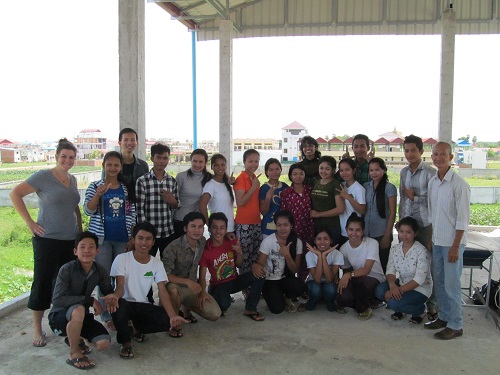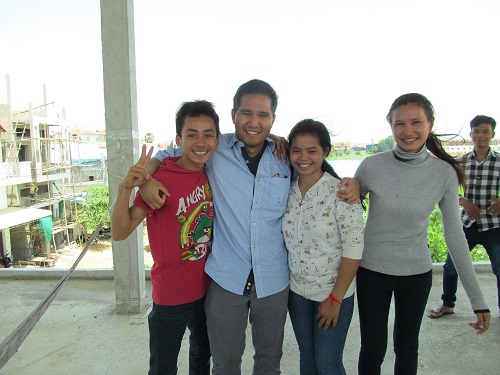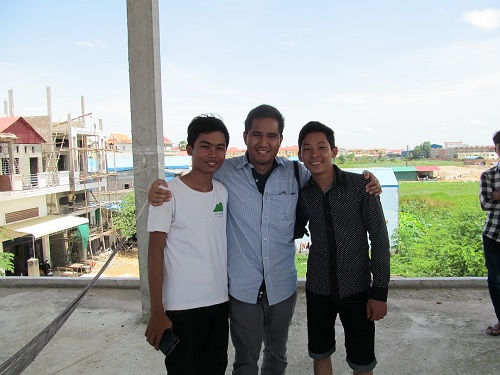UN press conference and impromptu English teaching (and singing)
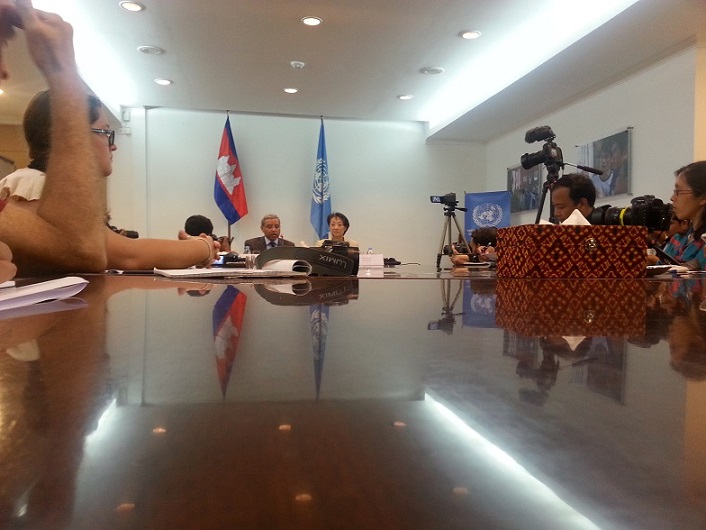
This past Tuesday, Vongseng (an ODC editor and Cambodian law graduate), Liz, Lisa and I were fortunate enough to attend a UN press conference held by Dr. Surya P. Subedi, a Professor of International Law at the University of Leeds and the UN Special Rapporteur for Cambodia. Despite the reluctance of the guards to let NGO workers inside the meeting room, they eventually allowed us to enter on the condition that we stand near the back of the room and not “interfere.” We gladly agreed and stood in the shadows of the swarming press who jostled for the best camera angles.
One of the meeting coordinators approached us and I immediately thought that we were going to be told to leave. However, Vongseng happened to know the coordinator and, after talking with him for a few minutes, we found ourselves sitting at the same table with Dr. Subedi! I was content with just being at the conference, but to be a participant exceeded my expectations.
Dr. Subedi’s statement, which will also be presented to the UN Human Rights Council in September, discussed the human rights situation in Cambodia. He believed that some progress had been made in the past few years, but additional reforms were necessary to ensure democratic peace and stability in the country. During the hour-long conference, he spoke about judicial, electoral, and parliamentary reform, land and labor rights, the situation of Cambodian migrant workers, and the creation of an independent national human rights institution.
Particularly appealing to me was Dr. Subedi’s stance on economic land concessions (ELCs) because I had just written a briefing on rubber ELCs. Dr. Subedi welcomed the news that the moratorium on new land concessions would remain in place for the time being. He recognized the variety of governmental, environmental, and human rights violations associated with ELCs–such as government land grabbing, deforestation, and forced relocation of indigenous rural communities.
At the end of Dr. Subedi’s statement, a few people were selected to ask questions. Fortunately for ODC, Lisa was chosen and she posed an excellent question regarding how foreign investment in Cambodia should be conducted in the future. Dr. Subedi advocated that foreign investment should complement, not degrade, the rights of citizens. He specifically called upon the government to ensure that any law on trade unions be respected so that labor conditions would be at respectable levels.
After the press conference, I briefly introduced myself to Dr. Subedi and told him it was a pleasure to hear him speak. This was definitely one of the highlights of my internship abroad!
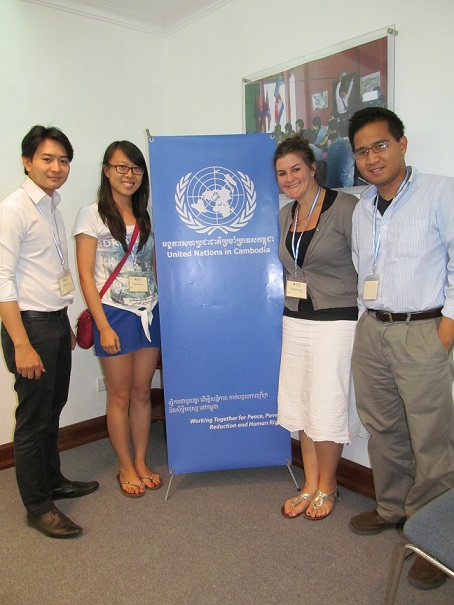
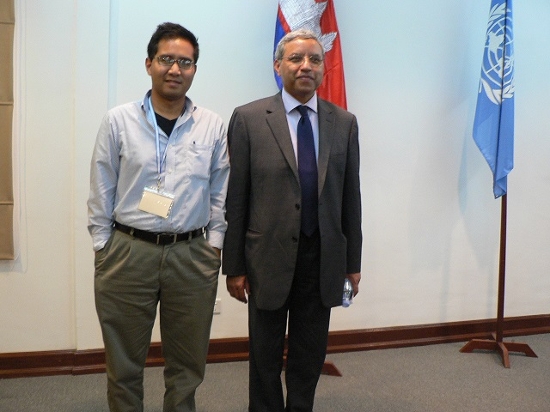
This past weekend, I visited Sustainable Schools International’s (SSI) program in Phnom Penh. SSI provides access to education to poor, rural, and marginalized Cambodian students. The organization also currently sponsors 1,924 students, supports 3 primary schools, 1 secondary school, and a high school scholarship program. Eric, one of my ODC co-workers whose father works at SSI, invited us to visit the high school program and interact with the students and teachers.
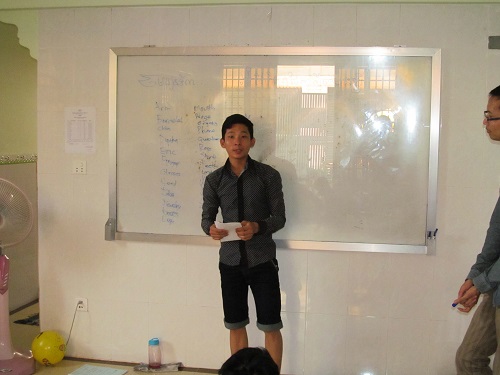
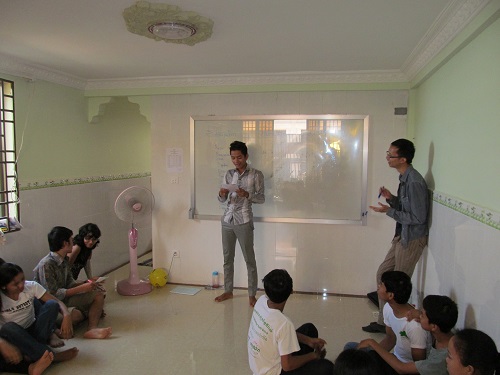
Upon arriving at SSI, we began by introducing ourselves and asking what some of the students’ favorite hobbies and activities were. We could tell they still felt uncomfortable and timid, so we resulted to what we knew would definitely clear the air–karaoke! We asked them to pick their favorite song in English and that we would sing with them. Hands suddenly shot up straight into the air and they chose “Take Me to Your Heart” by Michael Learns to Rock. This is apparently one of the most popular English songs here in Cambodia, but none of us had ever heard of it before! Thanks to Eric’s smartphone, we quickly searched for the lyrics and stumbled through the song as the students sang it perfectly!
For the rest of the day, we conducted some English lessons, played fun games together, shared many laughs and, of course, took many unforgettable pictures. These amazing kids, who have aspirations to be schoolteachers, doctors, nurses, scientists, and policewomen, are the future of Cambodia.
